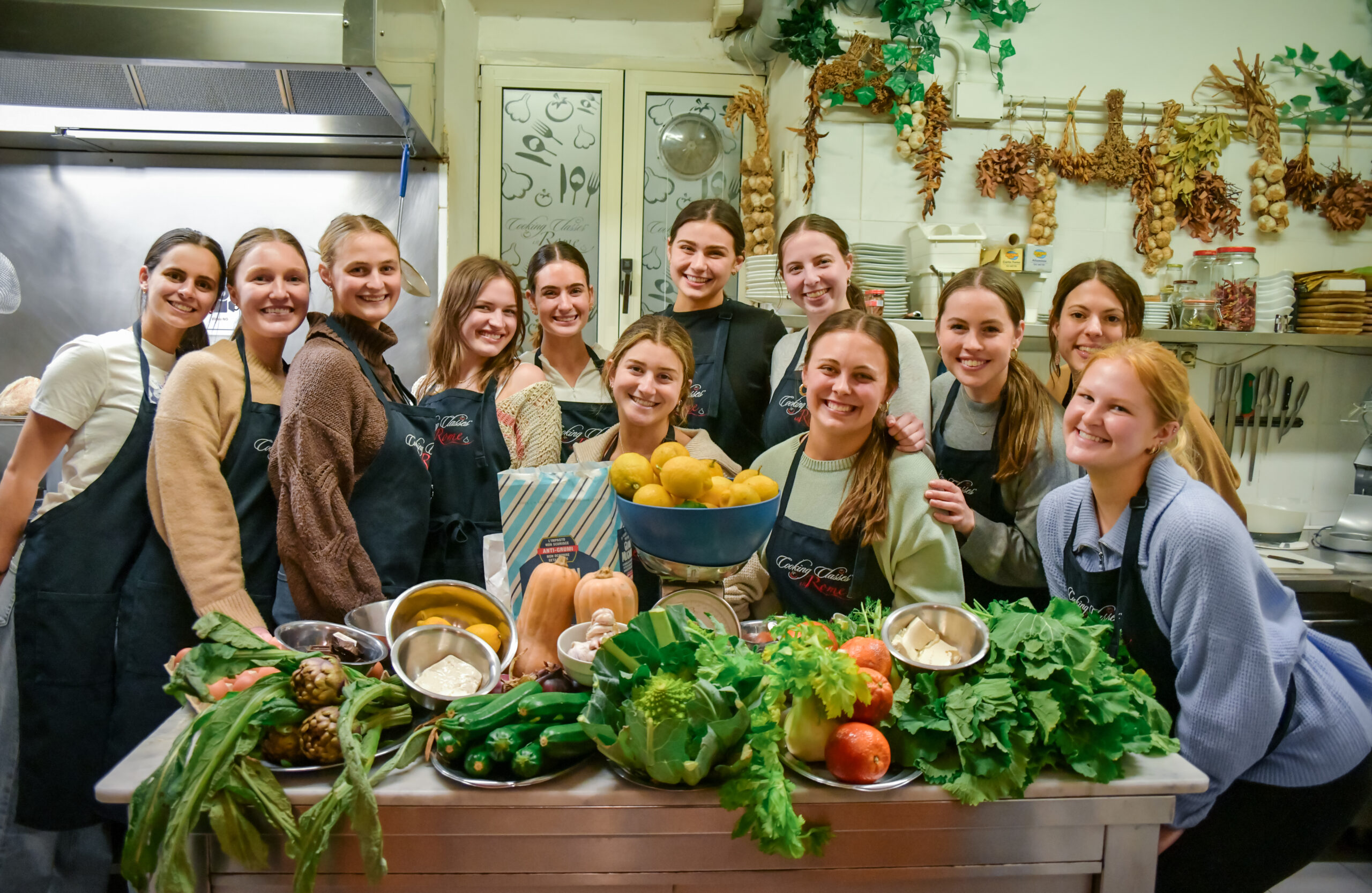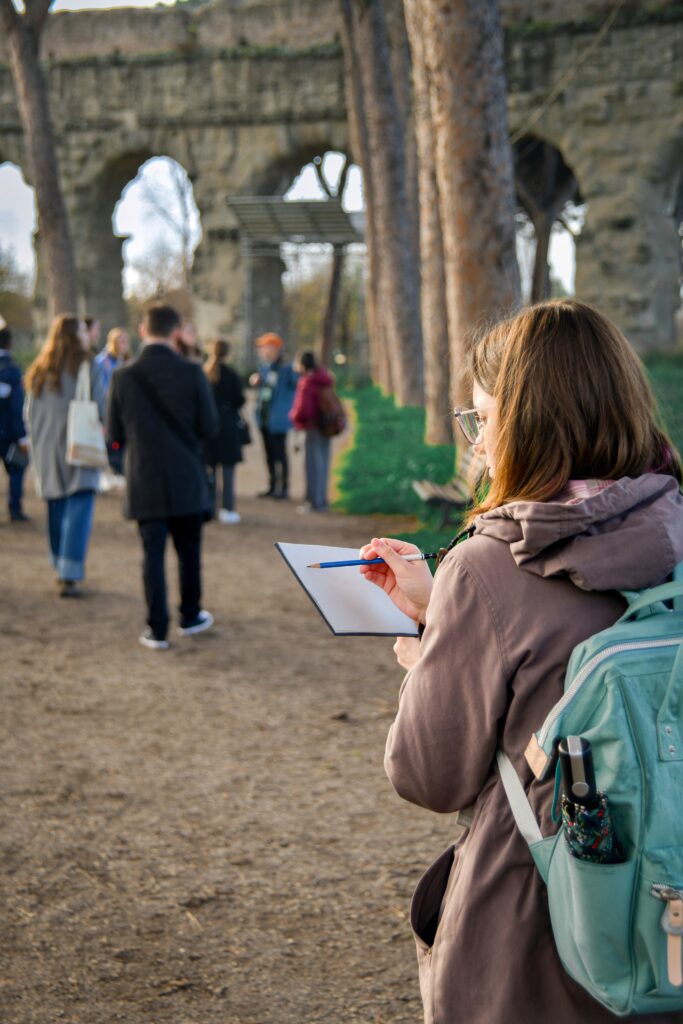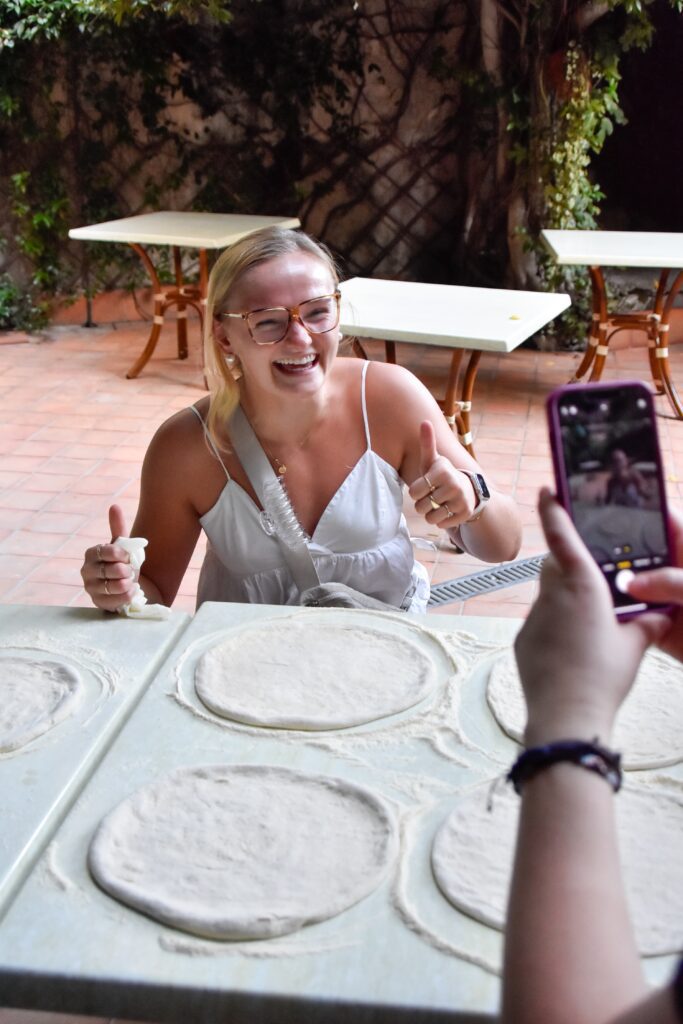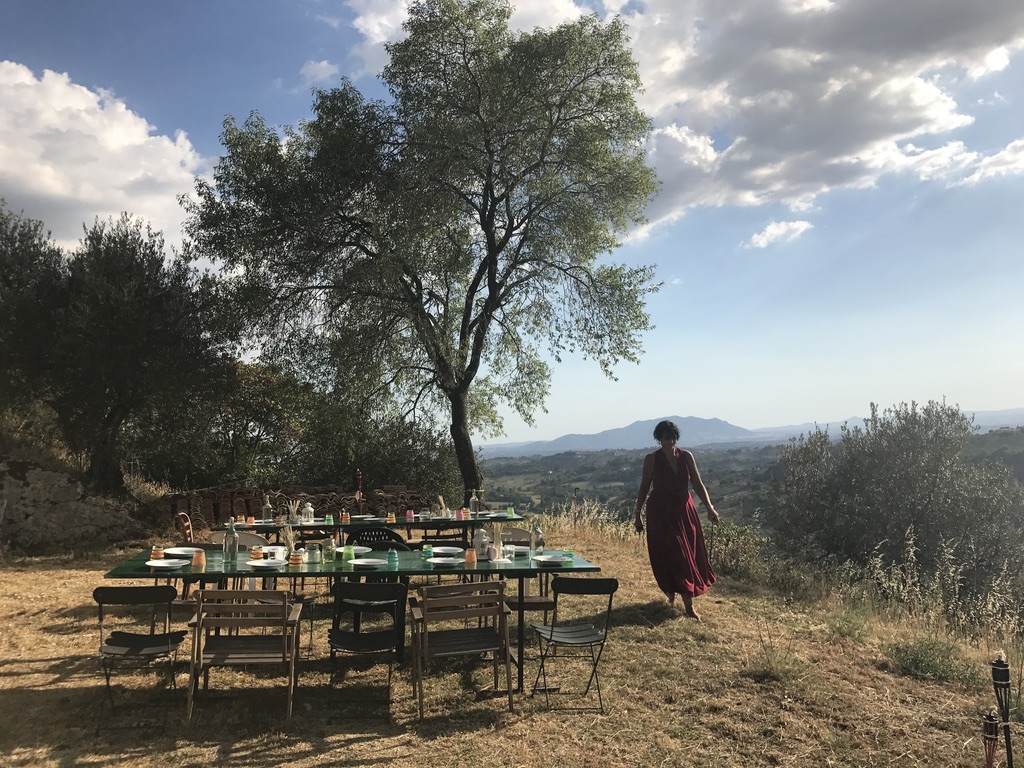We have been designing and running educational programs in Rome since before most of our students were born.
Not to brag, but we’re pretty good at it.
DISCOVER OUR PROGRAMS
Open Enrollment
… in a variety of areas of pressing importance for students wanting a more flexible study abroad experience.
Custom Faculty-Led
…including semester-long and short programs affiliated with our university partners.
Open Enrollment Programs
What makes open enrollment different?
Students get field-based learning experiences, grow their international network, and acquire a better understanding of themselves and their abilities, all while navigating a new language and culture in Rome, Italy. If placed in an internship, we combine study, observation, and hands-on work, along with a research project to showcase students’ newly developed insights.
What do students gain from open enrollment?
Our students gain the opportunity to explore their own interests, both academically and professionally. Because students can choose to enroll in one course, or various courses, their program is completely customized to fit their schedule and goals. Qualified students don’t need to be enrolled in any university to join one of our programs!

PROGRAM FULL
FALL 2025 Sustainability, Food, & Social Justice

COMING SOON!
Spring 2026
Sustainable Urbanism
Jan 18 – April 17, 2026
Spend 14 intensive weeks in Rome with planned group excursions to Campania, Tuscany, Veneto, and Abruzzo
Instruction, lodging, and excursions included in program fee.
Open Enrollment (Deadline: October 15, 2025)
Custom & Faculty-Led Programs
We design and manage your next program in Rome
Our Rome-based team is available to design programs to meet the needs of faculty and departments in a wide range of disciplines. With decades of experience and a strong web of connections, we help your students to engage fully with the rich local resources found in Rome and throughout the Mediterranean area.

Practical Information
Our academic offer stands on two pillars: experiental learning and sustainability.
Our Semester and Summer Programs entail 10-13 credit coursework.
For more information, check our four academic clusters.
The Borromini Institute’s headquarters in Rome are hosted in Palazzo Bennicelli, a historic building designed by Francesco Borromini in the heart of the old city, right between Piazza Navona and St. Peter’s Basilica.
Our facilities include:
– 3 large fully-equipped classrooms
– Library
– Media Lab
– Fine Arts Lab
– A meeting room for seminars
– Student services lounge
– Administrative offices
– Multi-gender restrooms
Moving abroad–even if just temporarily–is a big transition and the Borromini Institute prides itself on providing our students with multiple levels of support along every step of their stay. Our student services staff work to ease many of the logistical challenges that could arise when coming to Rome.
BI staff supports students travelling with pre-departure communications, reception at Rome FCO Airport, a city or neighborhood familiarization tour & ice breaking activities during orientation week.
While in Rome, students receive support from the Borromini Institute Learning Facilitator. The Learning Facilitator is available to provide practical support, cross-cultural mediation and assist students should any misunderstandings emerge in relation to their academic courses.
At the end of the program, our staff provides students with re-entry support (travelling, moveout, records).
The safety, health and wellness of our students is a priority at the Borromini Institute.
BI requires all its program participants to programs to enroll in a comprehensive international travel and health insurance policy suitable for international education or cultural exchange such as Cultural Insurance Services International (CISI).
Our Student Services Coordinator is our staff appointed to assist with questions of wellness and safety. In the case of an emergency, the coordinator is ready to implement an emergency response plan such as accompanying the student to the doctor, hospital, police station, coordinating between medical professionals in Italy and other countries and providing consistent support throughout the incident.
Aside from the health and wellness resources that are normally available to students, BI students also have access to Dr. Andrea Guerriero, our Medical Advisor. The medical advisor is on call for emergencies 24/7, can prescribe treatments and liaises with International Hospital Salvator Mundi or the Italian National Healthcare System in case of need.
At the beginning of each program the BI organizes an on-site safety and security orientation where students learn about the normal security precautions to exercise, communication protocols and support, services and resources they will have available during their program. We also provide orientations that are identity & inclusion specific (focusing on LGBTQIA+, women, students of color). We make available to all students at orientations and elsewhere lists of hospitals, physicians, counselors and pharmacies in Rome.
Our staff monitors official warnings and alerts regarding U.S. citizens provided by the U.S. embassy, the U.S. State Department, the Italian Government and AACUPI to address any additional measures that should be taken in the event of an emergency. BI implements a group evacuation and emergency plan (in case of pandemic, terrorist attacks, earthquakes) specific to each program in the event of an emergency.
Housing placements comprise fully furnished and functional shared apartments in central Rome.
Housing locations are in residential areas to encourage students to integrate into the local community. Pharmacies, hospitals, ATM machines, public transportation, supermarkets, and restaurants are all within comfortable exploring distance. The Borromini Insitute’s facilities are within walking distance (or a short bus ride).
The standard layout of the apartments consists of bedrooms, one or more bathrooms, kitchen, and living/dining room space. In most shared apartments, students range from four to six. Shared bedrooms have from two to three occupants. Single rooming requests can be made, subject to availability.
Students have access to an emergency as well as a weekly maintenance/cleaning service by the housing provider.
The Borromini Istitute would like to create a gender-inclusive environment for all students. A gender-inclusive housing environment allows students to live in the same housing and share bathrooms with another student, regardless of biological sex, gender expression, gender identity or sexual orientation. However, prior to arrangements, permission must be granted by the student for living arrangements.
2026 Open Enrollment Semester Programs
Sustainable Urbanism (13 weeks)
Sunday 18 January – Saturday 18 April, 2026
Courses: Italian Language, Layers of Rome:
Roman Topography & Monuments, Sustainable Rome: an Italian
Environmental Perspective, Urban Design Studio
Rome Academic Internship in
Food Studies and Climate Justice
(8 weeks)
Sunday 24 May – Saturday 18 July, 2026
Courses: Italian Language, Academic Internship, and 1 elective

Food & Media Studies (14 weeks)
Sunday 6 September – Saturday 5 December, 2026
Courses: Italian Language, Food Production: Olive Oil and Wine, Communicating Cultures, and 2 electives
2026 Open Enrollment Short Programs
Rome Urban History Seminar (6 nights)
March 1 – 7, 2026
Courses: Students take 1 core course for a total of 3 credits.
Human Rights: Rome’s Social History (6 nights)
April 19 – 25, 2026
Courses: Students take 1 core course for a total of 3 credits.
Digital Media: Rome’s Stories (6 nights)
April 26 – May 2, 2026
Courses: Students take 1 core course for a total of 3 credits.

Food Systems: Eating Rome (6 nights)
October 18 – 24, 2026
Courses: Students take 1 core course for a total of 3 credits.

PROGRAM FULL
Road Less Travelled Series
Constructing Rome: Archaeology, Architecture, Astonishing Views
CONTINUING EDUCATION

PROGRAM FULL
Road Less Travelled Series
The Road to Rome: Rural Roots in the Sabine Countryside
CONTINUING EDUCATION
Sat 25 Oct – Fri 31 Oct 2025
This food and culture tour takes you to the heart of the origins of the story of Rome itself: a nearby countryside region known as Sabina. Here we take you for an intimate look at the hilltop villages and into the lives of the people who have been practicing sustainable, small-scale agriculture for centuries.



